Search
Remove Ads
Advertisement
Search Results
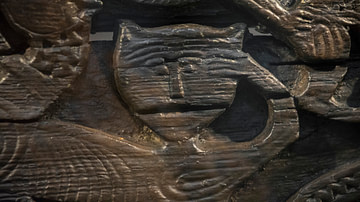
Article
Norse Pets in the Viking Age
Pets were as important to the Norse of the Viking Age (c. 790-1100 CE) as they were to any other culture, past or present. The Vikings kept dogs and cats as pets and both feature in Norse religious iconography and literature. The Norse also...
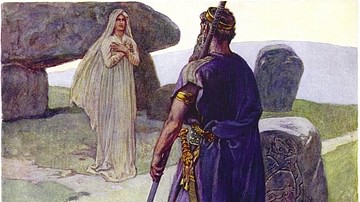
Article
Ten Norse Mythology Facts You Need to Know
The stories that make up what is known today as Norse mythology once informed the religious beliefs of the people of regions including Scandinavia and Iceland. To the Norse, the world was an enchanted place of gods, spirits, and other entities...

Definition
Odin
Odin (Old Norse: Óðinn) is the main god in Norse mythology. Described as an immensely wise, one-eyed old man, Odin has by far the most varied characteristics of any of the gods and is not only the deity to call upon when war was being prepared...
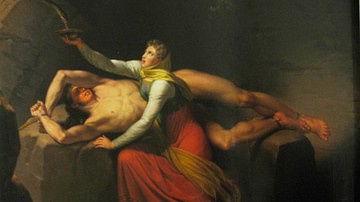
Definition
Loki
Loki is a god in Norse mythology who is often simply described as the 'trickster' god for his love of playing pranks on both his fellow gods and his or their opponents. Sworn brother of Odin and often the one to dig the other gods out of...
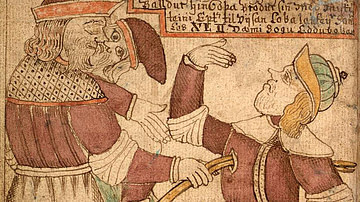
Image
Baldr's Death
Death of the Nose god Baldr, illustration from an 18th-century Icelandic manuscript. SÁM 66, 75v. Baldr was a beloved son of Frigg and Odin. Upon seeing his own death in a prophetic dream he became depressed. His mother did everything in...
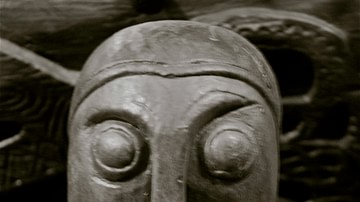
Definition
Vikings
The Vikings were originally diverse Scandinavian seafarers from Norway, Sweden, and Denmark (though other nationalities were later involved) whose raids and subsequent settlements significantly impacted the cultures of Europe and were felt...
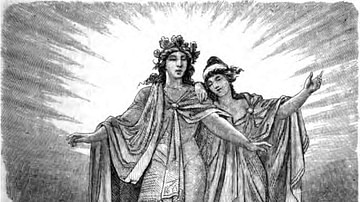
Image
Baldr and Nanna
The Norse god Baldr and his wife Nanna, illustration from page 271 of Nordisch-germanische Götter und Helden by Wilhelm Wägner, Otto Spamer, Leipzig & Berlin, 1882. Baldr was a beloved son of Odin and Frigg. Despite being universally loved...

Definition
Valhalla
Valhalla ("Hall of the Slain") is the afterlife realm in Norse mythology for fallen heroes selected by Odin’s Valkyrie to become members of the army that will fight against the forces of chaos at Ragnarök. The concept of Odin’s Hall seems...
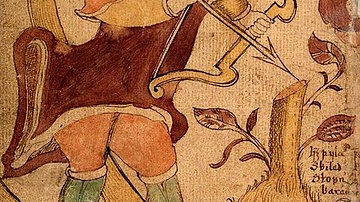
Definition
Ull
Ull (also known as Ullr), with his bow and skis, is such an elusive presence in Norse mythology that no conclusive remarks can be made about him. The 13th-century Icelandic author Snorri describes him only briefly in his Prose Edda, and he...

Definition
Norse Mythology
Norse mythology refers to the Scandinavian mythological framework that was upheld during and around the time of the Viking Age (c. 790- c. 1100 CE). Complete with a creation myth that has the first gods slaying a giant and turning his body...